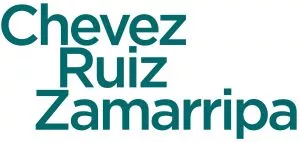1 Overview
1.1 What are the main trends/significant developments in the lending markets in your jurisdiction?
The COVID-19 pandemic represented an unprecedented disruptive event. At its beginning in 2020, the effects of COVID-19 triggered a recession that impacted financing markets globally. Early in 2020, the Mexican government declared a health emergency, implemented a series of measures, including travel restrictions, social distancing and school closures, and shut down non-essential activities to slow the spread of the virus. Mexican banking and other financial institutions, as well as banking institutions internationally, implemented crisis response plans, which included strict testing tools, close monitoring, and the implementation of refinancing alternatives for their clients. In this regard, the Mexican Banking and Securities Commission (Comisión Nacional Bancaria y de Valores or CNBV) enacted special – and temporary – accounting principles applicable to regulated entities with respect to consumer lending, mortgages and commercial loans, the performance of which was affected as a result of the pandemic. Such special regulations allowed banks to refinance consumer lending, mortgage loans and commercial loans for up to six months, without affecting their non-performing loans. Besides said special accounting guidelines, the CNBV also issued official recommendations which limited banks' capacity to pay dividends, as a prudent measure during the circumstances brought about by COVID-19.
As a result of COVID-19, the banking sector limited loan origination and built up prudential reserves, some of which were released in 2021 and which are expected to continue to be released in 2022. The effects of COVID-19 on traditional banks forced the development and consolidation of non-bank financial institutions (NBFIs) in their role of financing sectors of the economy that were not fully served by the banking industry, increasing competition between banks and other market participants. Sociedades financieras de objeto multiple (SOFOMEs), Issuer Trusts of Capital Development Certificates (Certificados de Capital de Desarrollo or CKDs), other private equity funds, as well as a large number of new fintech-related lenders, are currently very active in the market, offering alternative financing solutions which include mezzanine lending and other structured loans.
As Mexico is undergoing a steady recovery from the COVID-19 pandemic, the OECD expects the Mexican economy to expand by 3.3% in 2022 and 2.5% in 2023. Expanding access to financial services is a key driver for investment by SMEs and large corporations to promote growth and increase productivity. We expect an increase in loan demand and origination, with highly capitalised banks focusing on corporate and public-sector lending, and NBFIs serving SMEs and individuals.
1.2 What are some significant lending transactions that have taken place in your jurisdiction in recent years?
Notwithstanding 2021 being a challenging year for Mexico's lending market, there were some noteworthy lending transactions, including significant re-financing transactions brought about by the effects of COVID-19, other cross-border syndicated transactions, as well as a proportion of environmental, social and governance (ESG)-supported facilities. Below is a brief description of a number of recent public transactions:
- Unifin Financiera, S.A.B. de C.V. successfully concluded an exchange offer for a principal amount of up to US$200 million, targeting three series of outstanding senior notes due in 2022, 2023 and 2025 previously issued by the company, and the issuance of a US$400 million principal amount of 9.875% senior notes due in 2029.
- During 2021, Unifin Financiera, S.A.B. de C.V. completed several cross-border syndicated financing transactions led by Barclays Bank, Nomura Securities, Banco BTG Pactual S.A. and Banco Latinoamericano de Comercio Exterior, S.A., among others, for an aggregate approximate amount of US$285 million.
- One of the most relevant financing transactions during 2021 involved Cemex, where the company closed a US$3.25 billion syndicated credit agreement, consisting of a US$1.5 billion five-year amortising term loan and a US$1.75 billion five-year committed revolving facility.
- In May 2021, Corporación Inmobiliaria Vesta, S.A.B. de C.V. announced the successful closing of its inaugural Sustainability-Linked Bond offering, placing US$350 million in 10-year sustainability-linked notes at an interest rate of 3.625%.
- In June 2021, Hoteles City Express finalised a syndicated financing facility for US$191.7 million in order to refinance its indebtedness.
- In July 2021, Fibra SOMA, a Mexican real estate investment trust focused on the acquisition, leasing, and management of for-lease properties in Mexico, issued a US$600 million senior unsecured bond on the international markets.
- In July 2021, Terrafina, a Mexican industrial real estate investment trust, closed a syndicated US$485 million sustainability credit facility comprised of an unsecured revolving credit facility for an amount of US$300 million and an unsecured term loan for an amount of US$185 million, due in July 2026.
- In September 2021, Grupo Bimbo S.A.B. de C.V. renewed its committed revolving credit facility in the current amount of US$1.75 billion; such facility is sustainability-linked and marked the company's debut in sustainable financing.
Our firm advises, on a regular basis, Mexican companies both as lenders and borrowers in domestic and cross-border secured and unsecured financing and capital market transactions.
2 Guarantees
2.1 Can a company guarantee borrowings of one or more other members of its corporate group (see below for questions relating to fraudulent transfer/financial assistance)?
Yes, both in domestic and cross-border transactions, subject to foreign law.
Under Mexican law, there are no restrictions on a Mexican company guaranteeing or granting collateral for the obligations of a subsidiary or any other affiliate or related party. Such guarantee or collateral may be granted subject to the generally applicable rules on fraudulent conveyance (see question 2.2 below).
Under Mexican law, there are three main capacities under which a third party can secure a debtor's obligations: (1) joint obligor or co-obligor; (2) guarantor (obligado solidario); and/or (3) avalista (an entity that executes a promissory note – pagaré – or another negotiable instrument delivered by a debtor, as a guarantor).
Lenders' approach as regards due diligence is to confirm that third parties acting as guarantors, co-obligors or avalistas are authorised to do so under their organisational documents.
2.2 Are there enforceability or other concerns (such as director liability) if only a disproportionately small (or no) benefit to the guaranteeing/securing company can be shown?
Enforceability of a guarantee in Mexico is subject mainly to bankruptcy, insolvency, dissolution and liquidation, labour and tax regulations affecting the rights of creditors generally. Pursuant to the Insolvency Law (Ley de Concursos Mercantiles), guarantee transactions that are gratuitous, that provide no benefit or a disproportionately small benefit to the guaranteeing/securing company, can constitute a fraudulent conveyance in the event of company insolvency. In this regard, transactions in which a guarantor has not received fair consideration for granting a guarantee can be deemed fraudulent if the guarantee was created within the statutory lookback period of 270 days before the date on which the guarantor is declared insolvent by a Mexican court. For these reasons, close analysis should be carried out regarding monetary considerations or corporate benefits by any entity of a corporate group acting as guarantor of another related entity (see question 8.1).
Director liability is governed by general corporate laws and regulations. Regarding private companies, director liability is mainly related to actions adopted by any director or the board itself, whereby a conflict of interest exists and has not been disclosed. In the case of public companies, directors shall comply with the duties of loyalty and care. The duty of care consists of directors acting in good faith and in the best interests of the company, while the duty of loyalty consists of (i) maintaining the confidentiality of information received in connection with the performance of a director's duties while such information is not made publicly available, and (ii) abstaining from discussing or voting on matters where a director has a conflict of interest.
2.3 Is lack of corporate power an issue?
The General Law of Commercial Companies (Ley General de Sociedades Mercantiles) provides that all commercial entities are entitled to carry out all actions required for the fulfilment or development of its corporate purpose. The corporate purpose of a Mexican corporation shall include the company's authority to carry out financing transactions and to secure obligations/grant collateral, including obligations of third parties. Additionally, the bylaws of a Mexican corporation may require additional corporate approvals to carry out the aforementioned transactions, such as shareholder or board approval. Financing or guarantee transactions shall be executed by a duly appointed legal representative with sufficient powers and authorities pursuant to Mexican law, which may include powers of domain, administration and execution of negotiable instruments.
Other consents or requirements may apply, including authorisations from other lenders and governmental authorities (see question 2.4 below).
2.4 Are any governmental or other consents or filings, or other formalities (such as shareholder approval), required?
Regarding internal approvals, as mentioned above, certain corporate authorisations, including board and/or shareholder approvals, are usually required under the bylaws of a securing company.
Third-party consents may be required depending on the contractual obligations assumed by the securing company, including authorisations from other lenders pursuant to the covenants agreed under other financing transactions.
Governmental authorisations may be required depending on the type of company (i.e. regulated entities), or the type of assets (i.e. concession titles). In addition, depending on the type of collateral, certain formalities and filings with public registries may apply.
2.5 Are net worth, solvency or similar limitations imposed on the amount of a guarantee?
There are no legal or statutory net worth, solvency or other limitations imposed on the amount of a guarantee, except for insolvency or bankruptcy limitations.
2.6 Are there any exchange control or similar obstacles to enforcement of a guarantee?
As at the time of writing, Mexico has no exchange controls regulations in force. The Mexican peso is freely convertible into all other currencies and there are no restrictions on the remittance of profits abroad or the repatriation of capital. Notwithstanding the foregoing, pursuant to the Mexican Monetary Law (Ley Monetaria de los Estados Unidos Mexicanos), payment obligations denominated in foreign currency may be discharged by the borrower or the respective guarantor by paying any due amounts in Mexican currency at the rate of exchange published by the Bank of Mexico (Banco de México or Banxico) in Mexico and in effect on the date such payment is made.
To read the full article, please click here.
Originally published by International Comparative Legal Guide - Lending & Secured Finance 2022.




